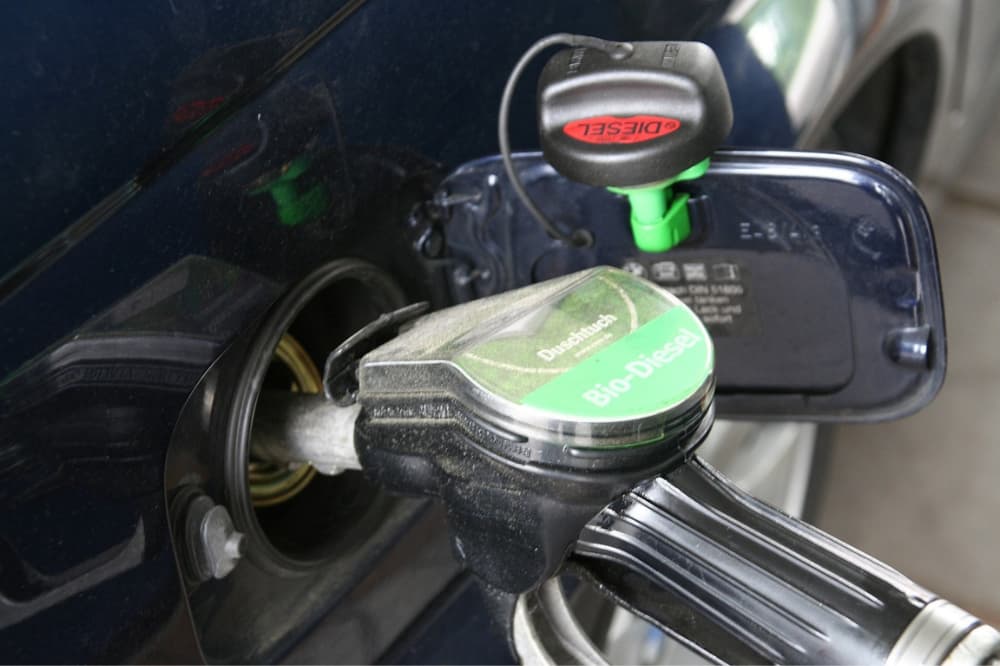Why is Red Diesel Illegal?

In recent times, the use of red diesel has been discussed more often in the UK, creating debates across various sectors and industries about the use of red diesel and rebated fuel. The fuel was once commonly used in agriculture, construction, and marine industries, and has found itself at the centre of controversy due to changes in legislation.
In this blog, we will explore the reasons behind the banning of red diesel for on-road use and explore the implications it holds for different industries.
What is Red Diesel?
Red diesel, also known as gas oil, is a type of rebated fuel that has been dyed red to imply that it has a lower tax rate compared to regular diesel. Both white diesel and red diesel fuel are chemically identical but have different applications as red diesel is used in specific industries that use off-road vehicles and machinery.
The red dye acts as a clear visual identifier that helps the government differentiate between regular and red diesel fuel during inspections and identify when the fuel is being used illegally.
One of the primary reasons red diesel fuel gained popularity was its cost advantage. The reduced tax on rebated fuel made it an attractive option for businesses operating off-road agricultural vehicles and machinery. Farmers, construction companies, and marine operators could benefit from the lower fuel costs, allowing them to remain competitive in their respective fields.
Environmental Concerns
Despite its economic benefits, red diesel came under scrutiny due to some environmental concerns. The dye in red diesel serves as a clear indication that it was not intended for use on public roads. However, there were instances of abuse, with some individuals using red diesel in vehicles meant for on-road use to take advantage of the lower tax rate.
The burning of red diesel fuels, produces emissions that contribute to pollution and global warming. With an increase in focus on environmental sustainability and reducing carbon footprints, the use of red diesel in unnecessary environments became a key point of discussion.
The Banning of Red Diesel
In 2021, the UK government announced a ban on the use of red diesel for on-road usage. The ban came into effect in April 2022 which marked a departure from the long-standing practice of providing tax relief to certain industries. The ban on the fuel was met with a mixed response, with industries that heavily relied on red diesel expressing their concerns about increased operational costs.
Reasons for the Banning of Red Diesel
Several factors contributed to the decision to ban red diesel for most purposes. One of the key factors was the need to align with the government’s commitment which was to reduce carbon emissions and promote a greener economy. By withdrawing the use of red diesel, the use of cleaner and alternative fuels was encouraged to be used more regularly in agricultural vehicles and machinery by industries across the UK.
The banning of the fuel also addressed the issue of tax evasion and the misuse of red diesel. The red dye used to identify the red diesel from regular fuel became less effective over time, leading to an increased amount of illegal usage of red diesel on public roads.
The ban aimed to address the illegal usage of red diesel and ensure that businesses pay the appropriate taxes based on their fuel consumption.
The Impact on Industries
The Red Diesel ban had various impacts on industries across the UK. Agriculture, construction, and marine sectors, which traditionally relied on red diesel, faced immediate challenges. The increased cost of fuel impacted the bottom line for many businesses, leading to concerns about competitiveness and profitability.
However, the red diesel ban also prompted innovation and adaptation within these industries. Businesses began exploring alternative fuel sources for power generation, investing in more fuel-efficient machinery, and adopting greener practices. The shift towards sustainability became a driving force for positive change within sectors that were once heavily reliant on red diesel.
Government Support
Acknowledging the challenges faced by industries affected by the banning of red diesel, the government introduced support measures and transition periods to ease the transition away from red diesel.
Financial incentives, grants, and tax relief were provided to encourage the usage of cleaner technologies and practices. This support aimed to assist businesses in making the necessary adjustments without compromising how they operate and compete with other industries.
The Future of Fuel in The UK
The red diesel ban has set the stage for a more sustainable future in the UK, with a greater emphasis on environmentally friendly practices. The government’s commitment to reducing carbon emissions aligns with global efforts to impact climate change. As industries adapt to the new regulations, there is an opportunity for change and the development of greener technologies.
Can You Still Buy Red Diesel After April 2022?
In April 2022 the access to rebated fuels was changed in the UK as the government aimed to promote the usage of cleaner fuels such as white diesel and HVO fuel. Numerous businesses across the UK including construction and recycling industries, were advised to switch to alternative fuels, or failing to do so can lead to your business or industry facing legal consequences.
However, red diesel is still available for purchase in the UK post-legal changes and is still available for uses such as agricultural vehicles, farming, non – commercial heating and power generation, and rail transport.
Red Diesel at Pleavin Petroleum
If you are looking to purchase red diesel for your business, Pleavin Petroleum offers a same-day delivery service once you place an order. Our team of experts aims to ensure your business can continue to run smoothly and is always here to help when you have any queries on what might be the most suitable fuel for your business. If you want to find out more about our services, visit our service pages to find out more about how we operate.

